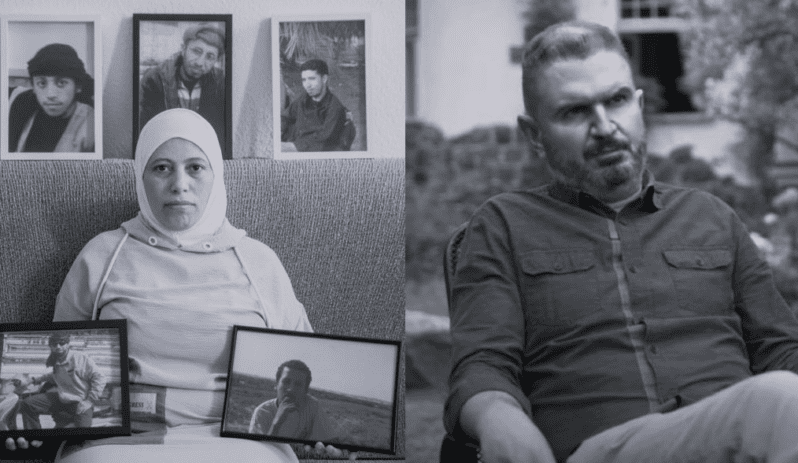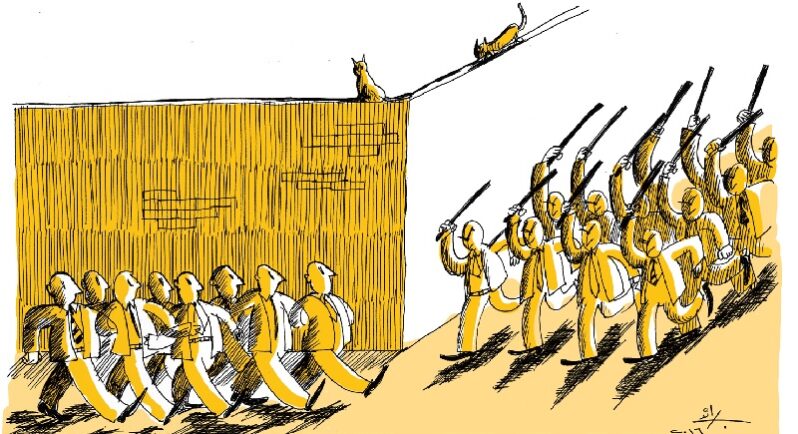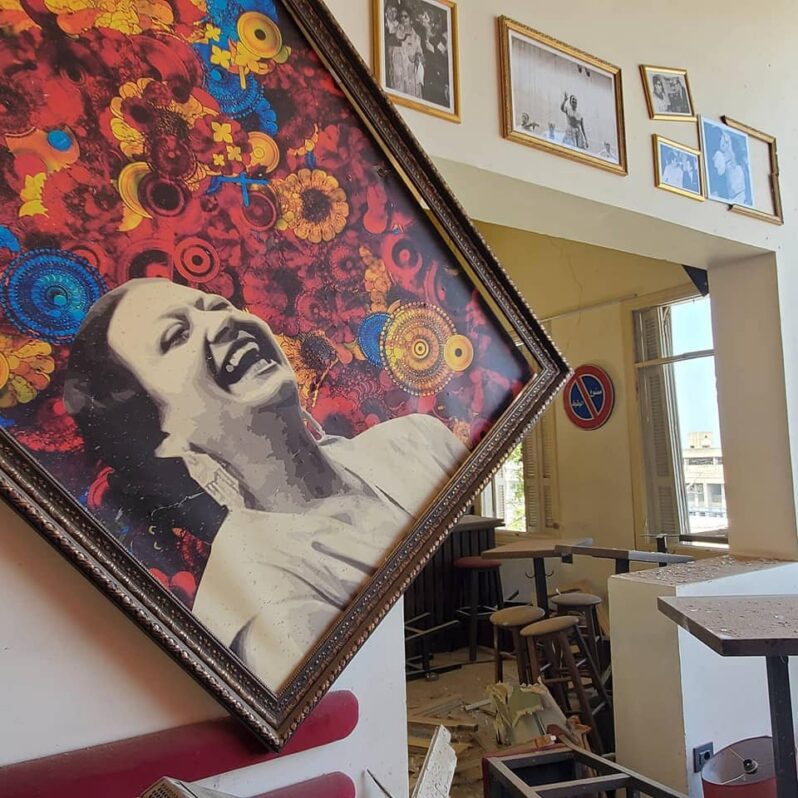Combatting “Terrorism” in Contemporary Moroccan Law (2003-2014): A Comparative Analysis

Nearly a decade after the Counterterrorism Law no. 03-03 was approved, the Moroccan government presented a bill to amend it, reopening parliamentary debate over the law’s contents. The original debate in 2003, when Morocco was reeling from the bombings of May 16, stood in stark contrast to the current debate over the draft amendment. The current debate coincides with a period of intense legal reform, initiated by the approval of the new Constitution that consecrated democracy and the respect for human rights as immutable tenets of the monarchy. As such, several questions about the nature of the recent amendments arise: What is the general national and international context of the new draft amendment? What is the actual number of crimes in Morocco that can be labeled as terrorist? What are the provisions of the new draft, and to what extent has its content succeeded in balancing the need to fully protect the community from the chaos of terrorism, with the need to respect human rights and civil and individual liberties?
The 2003 Law in the Wake of the Casablanca Bombings
The bombings that shook Casablanca on May 16, 2003, hastened the vote on Counterterrorism Law 03-03 mentioned earlier.[1] This law had three purposes:
Firstly, it criminalized acts that it considered terrorist offences and established deterrent penalties that, in some cases, include execution. The law did not clearly define the crime of terrorism; rather, it merely listed acts that it considers as terrorism. These were deemed so “whenever they are deliberately linked to an individual or collective plan to seriously disrupt public order using intimidation, terror, or violence”.[2] Certain acts, even if not part of such a plan, were also identified as acts of terror.[3] The UN Committee Against Torture (CAT) criticized this aspect and called for terrorism to be precisely defined, in order to uphold the principle that there can be no penalty without a law.[4]
The law’s description of terrorist offences was also criticized on account of the ambiguity of the expression “disrupt public order”. This general expression is very flexible and has multiple meanings, and all crimes, whether ordinary, terrorist, or political, constitute a breach of public order. Moreover, the law’s description of the nature of the crime relies on means of perpetration (intimidation, terror, and violence) that are themselves obscure. On one hand, the meanings of these terms, borrowed from French legislation, are more or less identical. On the other hand, “intimidation” and “terror” merely describe a psychological effect that accompanies terrorism and pertains more to the victim than the perpetrator, which again leaves the definition of the act itself unclear. Furthermore, terrorists do not have a monopoly on intimidation, terror, and violence; hence, the law could be applied to other criminals who use the same methods. Finally, the stipulation that a terrorist act must aim to “seriously disrupt public order” means that it must pose a certain amount of danger to public order; the law left it up to judges to determine the extent of this danger using their discretionary power on a case-by-case basis.
Secondly, the law regulated the procedures that relate to the crime of terrorism. In this area, the most important amendment it made may be that which vested jurisdiction in a single, regular court, i.e., the Rabat Court of Appeal. Hence, the court has jurisdiction over all Moroccan territory; it tries terrorism cases irrespective of the location of the crime, or the location in which the accused lives or was arrested. Restricting jurisdiction in this manner was justified on the basis that it would facilitate the processing of cases; make it easier to monitor the administration of judges of cases dealing with these crimes, whose impact touches on the security of citizens and the community alike; and, help standardize court jurisprudence relating to terrorism. However, these justifications remain unconvincing as the Rabat court ultimately answers to the Court of Cassation, which monitors the application of the law and ensures the standardization of court jurisprudence.
Retaining this exception which violates the principle of territorial jurisdiction also creates opportunities for attempts to illegally influence judges. This is especially the case given the problems concerning the means through which judges in these courts are appointed, and how these cases are distributed in the context of the deficiencies in the modus operandi of the general assemblies in most courts. Moreover, there are a number of ambiguities relating to the proper administration of justice. For example, what happens if it becomes apparent that the crime for which an accused person is being prosecuted does not fit the description of a “terrorist offense”? Does the Rabat court[5] continue examining the case, or must it issue a no-jurisdiction ruling? What then is the fate of the accused, and the outcome of the procedures taken and decisions made at the various stages of public proceedings?
The law also raised the time limit on police custody to 96 hours, twice renewable, thereby rendering the total period to a maximum of 12 days. Moreover, suspects are only permitted to contact a lawyer after 6 days, thus increasing the risk that they will be subjected to torture or forced to confess. The UN Committee Against Torture criticized this aspect in particular.[6]
Furthermore, the law allowed for houses to be searched or surveilled outside of normal times, if permission is granted by the Public Prosecution or Investigating Judge. It also allowed the National Brigade of the Judicial Police to specialize in investigating terrorism cases, and allowed prisons to allocate separate quarters to house people detained in terrorism cases.[7]
Thirdly, the law addressed the handling of financial information and sought to stop the movement of money intended to fund terrorism. This lifted the system of bank secrecy in the context of security and legal investigations, and introduced the possibility of freezing suspicious bank accounts, and prosecuting the perpetrators of crimes related to funding terrorism.
Prosecution of Terrorist Offenses Under the 2003 Law
According to statistics issued by the Ministry of Justice, the year 2003 witnessed the highest number of terrorism cases, a total of 2364. The years that followed witnessed a decline in the number of such cases, although it rose again in more recent years as discussions about the challenges of terrorism expanded, especially in the Arab region.
In 2005, 27 cases were recorded. In 2006, 35 were recorded. The number rose to 136 in 2010, only to fall again to 68 in 2011. The following year, 31 cases were recorded, but the number rose once again and reached 64 in 2013. The number began climbing again as discussions returned to the development of terrorism-related crime, as a result of the changes that the international system witnessed due to the appearance of new hotbeds of tension. An increasing number of Moroccans are gravitating to these hotbeds and then leaving them to commit terrorist-identified offences back home, or in other countries. Thus, in 2014, a total of 147 cases were recorded, a 130% increase over the previous year.[8] Furthermore, the number of people charged with terrorism that have been presented to the Public Prosecution reached 323, in contrast to the mere 138 recorded in 2013.
Security and judicial investigations have revealed that most people prosecuted in terrorism cases are linked to internationally designated terrorist organizations, either directly, or indirectly through ideological affiliation. In addition, some Moroccans are active in terrorist-identified groups outside of Morocco.
The Draft Amendment of the 2003 Law: Proclivities and Objections
In this context, the Moroccan government announced its intention to consolidate and improve its efforts to combat terrorism. Its approach was not limited to punitive and security aspects (discussed below); rather, it also encompassed, according to the announcement, a spiritual-religious strategy that aims to propagate the values of a tolerant, moderate Islam, and socioeconomic development that focuses primarily on the individual. The punitive aspect, on the other hand, involved preparing draft law no. 84-14 which the government subsequently referred to the Justice, Legislation, and Human Rights Committee of the House of Representatives to discuss. What did the draft stipulate? What were the most important debates that it provoked?
Amendments Concerning Terrorist Offences
Draft law no. 84-14 adds to the Penal Code a new article[9] that classifies a group of actions related to “terrorism” training camps as crimes punishable by up to fifteen years of imprisonment, with juridical persons receiving penalties that suit their legal nature. Hence, if the draft is approved, it will become a crime to join or attempt to join, as an individual or group in an organized or disorganized manner, organizations, gangs, or groups, whatever their form, goal, or location that are categorized as terrorist entities. This applies even if the actions are not intended to harm Morocco or its interests. Similarly, it will become a crime to receive or attempt to receive training, whatever its type, form, or duration, inside or outside Moroccan territory for the purpose of committing a “terrorist” act, within or outside the kingdom. It will also be a crime to recruit, train, or incite one or more people to join a “terrorist” entity, organization, gang, or group within or outside Morocco, or to attempt to do so.
The aforementioned draft also supplements article 218-2 of the Penal Code with a second paragraph that criminalizes any act of publicizing, praising, or promoting for the benefit of “terrorist” entities, organizations, gangs, or groups using one of the means stipulated in the article’s original paragraph. It stipulates for these acts the same punishments that are applied for the act of praising the crime of terrorism itself.
The draft also reduces the punishment for the act of inciting the crime of terrorism stipulated in article 218-5 of the Penal Code. Currently, inciting an act of terrorism is punishable by the same penalty as the terrorist act itself, which, depending on the circumstances stipulated in article 218-7, may reach 30 years of imprisonment, life imprisonment, or execution. Under the new amendments, the punishment is imprisonment ranging from 5 to 15 years, and a fine ranging from MAD50,000 to MAD500,000 [US$5,100 to US$51,000]. Additionally, the draft enables judges to use their discretionary power to customize punishment according to the circumstances and potential consequences of the incitement.
Amendments to the Criminal Procedure Code
To overcome the difficulties of applying the same general principles of judicial jurisdiction that relate to other crimes committed outside of Moroccan territory,[10] the draft adds a new article[11] that allows for Moroccan nationals, whether present in Morocco or not, to be tried for committing terrorist-designated offenses outside of the country. It also allows foreigners inside Morocco to be tried for such offenses. The article overrides other legal provisions.
The National Human Rights Council’s Comments
When the draft law was referred to the Justice, Legislation, and Human Rights Committee in the House of Representatives, the opposition parties’ first reaction was to ask for it to be referred to the National Human Rights Council. This occurred on December 15, 2014.
On December 23, the Council delivered its opinion to the Committee. One of its most important recommendations was that the draft should include a provision that clearly defines the goal of terrorist-designated entities, organizations, gangs, and groups, as one intended “to propagate a state of terror, intimidate the populace, or force a government or international organization to take or not take a certain action”.
To avoid unnecessarily limiting freedom of movement, which is guaranteed by the Constitution and by the International Covenant on Civil and Political Rights, the Council recommended adding a provision that defines terrorist training as “training in the manufacturing and use of explosives, firearms, other weapons, and toxic and dangerous substances and the use of special techniques for committing or aiding in a terrorist offense, with the knowledge that the training provided is intended to be used for that purpose”.
The Council also suggested adding a provision that fully establishes the recruitment and use of children by terrorist-designated groups as an aggravating circumstance.
The Council advised that the draft should not expand the scope of the crime to include praising terrorism, as it had done by adding new synonyms like “publicizing” and “promoting”. In this vein, it suggested replacing the term “praising” with the more precise expression “public provocation to commit a terrorist offence”. It recommended taking inspiration from article 5 of the Council of Europe’s Convention on the Prevention of Terrorism, which defines “public provocation to commit a terrorist offence” as “the distribution, or otherwise making available, of a message to the public, with the intent to incite the commission of a terrorist offence, where such conduct, whether or not directly advocating terrorist offences, causes a danger that one or more such offences may be committed”.
Similarly, the Council recommended replacing the expressions “publicizing”, “praising”, and “propagating” in the second paragraph of article 218-2, with a provision that criminalizes the use of the means stipulated in the paragraph to publicly incite people to join terrorist groups. It also recommended replacing the expression “convincing another” and retaining the two terms that are more standard and therefore clearer –“inciting” and “provoking”– in addition to the term “luring”, wherever minors are concerned.
Amendments Jointly Requested by the Opposition
The opposition collectively put forward a group of amendments to the draft law. In these amendments, it demanded that “the recruitment and use of children and minors by terrorist groups” inside and outside Morocco be considered an “aggravating circumstance that doubles the sentences” of people found guilty of such an act.
Furthermore, it proposed adding a number of paragraphs that toughen penalties for those with spiritual, educational, or administrative authority who commit terrorist acts. It also called for the removal of the expression “even if the terrorist acts are not aimed at damaging the Kingdom of Morocco or its interests” from the first article (218-1-1, paragraph 1), because “criminalization is senseless if the criminalized act does not cause the least amount of damage to the Kingdom or its interests”.
The opposition groups within the House of Representative’s Justice, Legislation, and Human Rights Committee abstained from voting on the new law.
Conclusion
The draft Counterterrorism Law amendment currently being discussed in the House of Councillors has once again raised the difficult question of how to balance protecting the security of citizens and the community, with the need to fully protect human rights. It raises serious conundrums concerning the actual safeguards for preventing a repetition of the human rights violations that accompanied the implementation of the 2003 law (which have been officially acknowledged as individual transgressions), especially given that their perpetrators have not been held legally accountable.
Counterterrorism must not be limited to the domains of security and legal restraint. Rather, it requires a comprehensive approach in which legal, socio-economic, cultural-educational, and intellectual aspects overlap. Terrorism is not a concrete legal concept; rather, it is a dynamic, evolving ideological concept that presents a major challenge with respect to drawing a dividing line between what stems from religious frames of reference, and what stems from political and legal frames of reference. Such a distinction is an important factor in determining the kind of approach to be taken against it.
The new draft law has given precedence to deterrence and punishment over mechanisms for supporting victims, or reintegrating those involved in terrorist-designated acts. It can be added to the group of exceptional provisions (allowing hacking, the recording of phone conversations, etc.) that were included in the draft amendment to the Criminal Procedure Code, and may undermine the presumption of innocence and the safeguards that protect accused persons during the phase of preliminary investigation. Last but not least, the draft did not respond to the remarks that international committees made about the period of police custody, and the right of suspects to contact lawyers during preliminary investigation. In short, the reform draft of Morocco’s Counterterrorism Law is itself still in need of further reform.
This article is an edited translation from Arabic.
_______
[1] Counterterrorism Law 03-03, implemented by Royal Decree 1.03.140 on May 28, 2003.
[2] Article 218-8 of the Counterterrorism Law.
[3] Articles 218-4, 218-5, and 218-8 of the Counterterrorism Law.
[4] For more details, see the UN Committee Against Torture’s concluding observations on Morocco’s report, session 47 of the United Nations, November 2011.
[5] The court in question is, more specifically, the Salé annex of the Rabat Court of Appeals, which settles terrorism cases.
[6] See note 4 above, idem.
[7] See: Abd al-Haqq Samrak’s, “The Terrorism Phenomenon and Morocco’s Efforts to Combat It”, Journal of Criminal Affairs, December 2011, p. 105.
[8] According to official numbers, more than 120 counterterrorism cases were recorded during the first eight months of 2014, and more than 1,212 Moroccans are present in hotbeds of tension. The latter number may rise to more than 2,000 if people of Moroccan ancestry who hold European or American nationality are included. More than 147 volunteers have returned to Morocco, and 6 more Moroccans have been caught on the borders trying to leave Moroccan territory.
[9] This concerns article 218-1-1.
[10] See articles 707-712 of the Criminal Procedure Code.
[11] This concerns article 711-1 of the Criminal Procedure Code.



